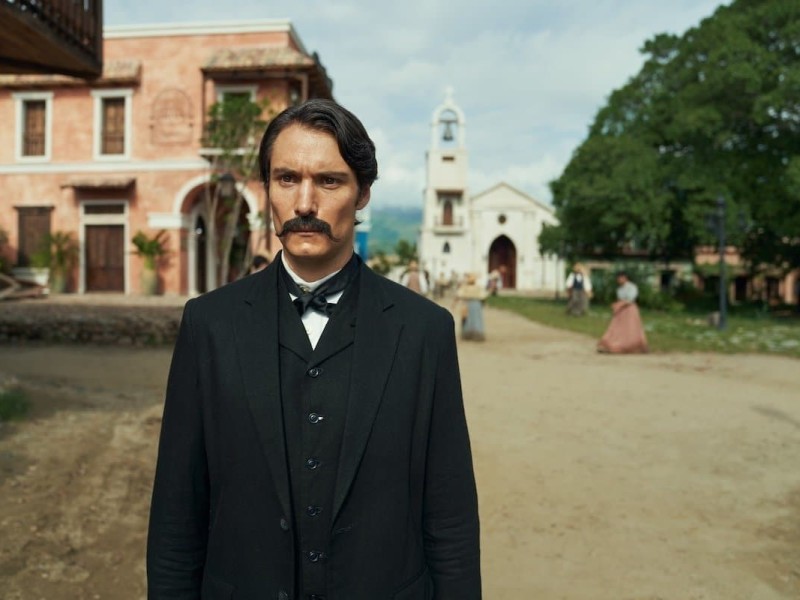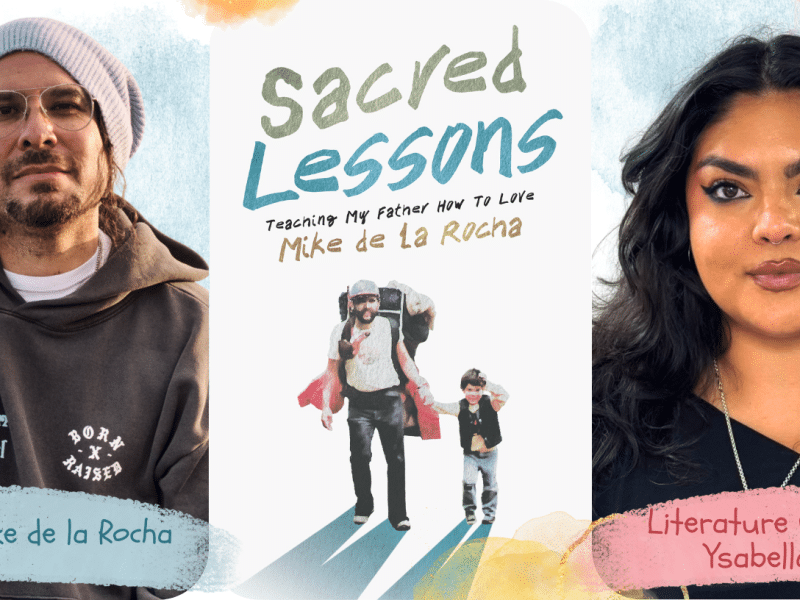Season 1 of Netflix’s CIEN AÑOS DE SOLEDAD Series Delivers
During the opening introduction minute of Netflix’s new two-season adaptation of Gabríel García Márquez’s Cien años de soledad (One Hundred Years of Solitude), premiering December 11, I was worried.

As skeptical as I was, the new adaptation of the literary masterpiece will make the streaming giant (and many fans of the book) happy
Originally published in The Latino Newsletter–reprinted with permission.
During the opening introduction minute of Netflix’s new two-season adaptation of Gabríel García Márquez’s Cien años de soledad (One Hundred Years of Solitude), premiering December 11, I was worried.
Here I was, a writer/journalist who read the book for the first time at 13 years old (thank you, Mr. Martin’s sophomore AP English class) and then proceeded to read it five more times for the next 50 years—twice more in English and three times in Spanish. If there is one book that made me want to be a writer, it was Cien años. I thought García Márquez was a literary genius, on the same level as any of the greatest writers in world history.
There was no way this Netflix series —nine years in the making— would do the novel any justice, and as the first scene started rolling, I was rolling my eyes. There are no words, just distant chanting and music as we pan across images of an empty and destroyed home, obviously where the Buendía family once resided. We cut to an unidentified body on a bed, their belly covered in blood. Next to the bed is an empty baby crib.
It all feels mysterious and ambiguous. Manufactured magical realism for the masses? No, thank you. This was not the novel I knew, the one that Gabo wrote in 1967 and earned him the 1982 Nobel Prize for Literature after Cien años became a global sensation and made Latin American literature cool.
I was being duped, I thought.
Then, it all started to click.
Soon, we see what can only be the Buendía family tree (how many times I studied it) and hear an omniscient narrator utter the most famous opening line in Spanish-language literature: “Muchos años después, frente al pelotón de fusilamiento, el coronel Aureliano Buendía había de recordar aquella tarde remota en que su padre lo llevó a conocer el hielo.” (Or as acclaimed translator Gregory Rabassa put it in the English-language version of the novel, “Many years later, as he faced the firing squad, Colonel Aureliano Buendía was to remember that distant afternoon when his father took him to discover ice.”)
I was in.
All the worry had dissipated.
As the first episode progressed, I suddenly felt joy as characters I had known and imagined for years were now visual representations of a Nerlfix series: José Arcadio Buendía, Úrsula Iguarán, Amaranta, Rebeca, Colonel Aureliano Buendía, José Arcadio, Melquíades, etc.
I could go on and share more about these characters and their performances or about how visually beautiful the series looks as we experience the entire story of Macondo being told.
But I won’t.
If you are a superfan of the novel, you will appreciate this series. I want all who love this novel to find joy in this adaptation on their own because you will find it. Countless scenes transport you back to the book. I mean, the trail of blood, Colombia’s political history, Pietro Crespi’s singing voice, the cockfight that started it all, the social critiques, the abuse of power—there are too many to list here and dissect. There were so many moments that after I finished the Season 1 screener, I started reading the novel again. This would be my fourth time in Spanish and seventh overall.
Still, three performances stand out. (And don’t get me wrong: the entire ensemble is great.)
Marlyeda Soto, who played an older Úrsula, had a presence that I am still thinking about days after completing Season 1. Her toughness hides her sadness and realization that all she has in the end is a husband, José Arcadio Buendía, tied to a tree in his old age. Talk about love. Soto is brilliant.

(Pablo Arellano / Netflix ©️2024)
There is Claudio Cataño, who played the older Aureliano as the character goes from adult son to colonel. Cataño gave a masterful performance, bordering on the edge of arrogance and lost purpose. He is living in solitude, and we see it on his face at all times.

(Pablo Arellano /Netflix ©️2024)
Then there is Marco Antonio González as a José Arcadio Buendía who led with ambition and hope. This was before the character goes senile, and González gives depth to the role that speaks to men as providers and dreamers. Those two combinations don’t always mix well and lead to success. I ended up rooting for him, yet feeling hopeless when things turned bleak.

(Mauro González /Netflix ©2024)
A lot more can be said about this series, and Netflix’s marketing machine will make sure we all get to know about it. Issues of representation, who gets to tell the story, how the story was adapted, and whether it will be the streaming giant’s next global hit are all open to discussion and debate. But I will wait a bit more to share those thoughts. In the meantime, for all the skeptics out there, the same Cien años superfans who look at the novel with a sense of reverence like me, I hope you give the series a shot.
For me, it delivered. It will never be the novel (what is?), but it was still an excellent adaptation.
Enjoy it, and then when we are all done watching it, we can all talk about what we loved and what needed improvements, as if we are discovering Gabo for the first time.
I already have my thoughts on how it could have been better, but I will not be the one who ruins anyone’s anticipation for this series.
I want you all to feel the same way I did when I watched it. Get excited for it.
It’s definitely worth it.
Season 1 of Cien años de soledad premieres on Netflix on December 11.




